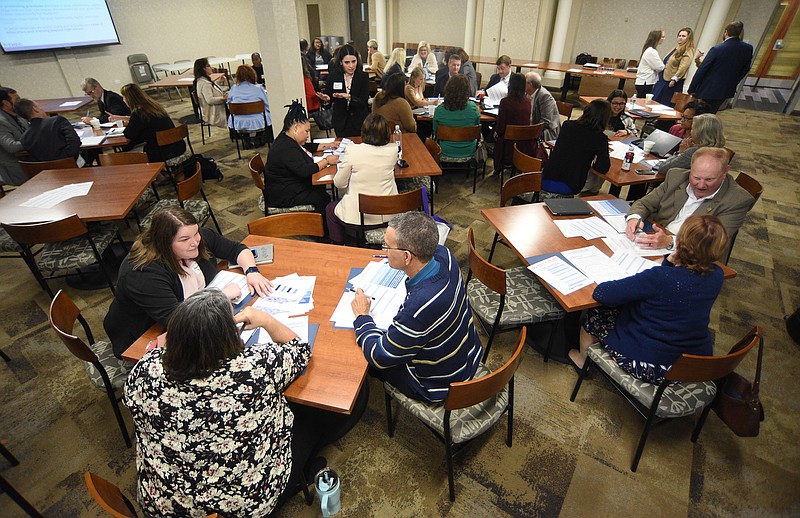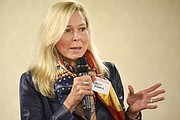Tennessee's rate of high schoolers going on to post-secondary education has fallen to roughly 52% -- a decrease of 9 percentage points from the onset of the pandemic. State officials say the decline is cause for immediate intervention -- and they're doing just that.
"We think this is a real call to action," Samantha Gutter, chief access and outreach officer for the Tennessee Higher Education Commission, said at a conference Tuesday. "There's been something that's changed in student mindsets and behavior. And we want to do something about it."
Tuesday's conference, at Chattanooga State Community College, was part of a series of regional meetings hosted by the commission in an effort to increase the college-going rate by bringing together school districts, higher education institutions and community organizations for discussion.
The commission has three goals it hopes to achieve by 2023:
-- Increase the college-going rate for the high school class of 2023 to at least 60%.
-- Increase adult enrollment in higher education through Tennessee Reconnect participation.
-- Improve coordination and alignment in education and workforce training to ensure students have options for greater economic mobility.
Courtney Bell, vice president of strategic practice at the State Collaborative on Reforming Education, said low college-going rates have consequences for students and the economy at large.
"We all know there is great value in getting a degree or credential after high school both for future earning power, but also for opening doors to additional opportunities for students," Bell said Tuesday.
Hamilton County's college-going rate is slightly higher than the statewide average -- 54%. The county has also seen a drop of 9 percentage points since the onset of the pandemic.
Data also shows racial disparities in college-going rates are widening. Statewide, Latino students had a college-going rate of 35%, Black students 44% and white students 57%.
In Hamilton County, the 2021 college-going rate for nonwhite students was 44% compared to 64% for white students. Nonwhite students saw a drop of 13 percentage points in college-going rates since the onset of the pandemic. White students saw a drop of 4 percentage points during that same time period.
Individuals with post-secondary credentials earn 1.5 times more than those with only a high school diploma, Bell said. They are also more civically engaged, are less likely to encounter the criminal justice system and have better health over their lifetime, Bell said.
"We also know that we want our students to be focused on creating careers, not just getting jobs," Bell said. "And at a time when our unemployment is at a record low and job opportunities abound, we keep hearing about jobs at Hobby Lobby paying $24 an hour, which sounds really attractive if you're an 18-year-old. It is critical that we help our students think about what is best for their future long term."
Elaine Swafford, CEO of Chattanooga Girls Leadership Academy, attended the conference Tuesday. She said her students cite money as the main reason they don't pursue higher education. They also cite family obligations and fear of the unknown, she said.
(READ MORE: Opinion: What is your best return-on-college-investment in Tennessee?)
"(We need to) talk up the experience of college," Swafford said in an interview. "And for a lot of kids, take them to the campuses. If they can't see it, they don't know how to be it."
Chattanooga 2.0 Director Keri Randolph, who also attended Tuesday's event, agreed.
"We have to demystify what college is for and how to navigate college," Randolph said in an interview.
Ensuring students know how to apply for financial aid via the free application for federal student aid will be one of the Tennessee Higher Education Commission's focuses over the next two years.
"We're going to be sharing more on ways we can collectively message about FAFSA and the value of education through this process," Gutter said. "And we have collaboration, frequent communication with partners and really want to be focused and have that central way of communicating to students this year."
Contact Carmen Nesbitt at cnesbitt@timesfreepress.com or 423-757-6327. Follow her on Twitter @carmen_nesbitt.

